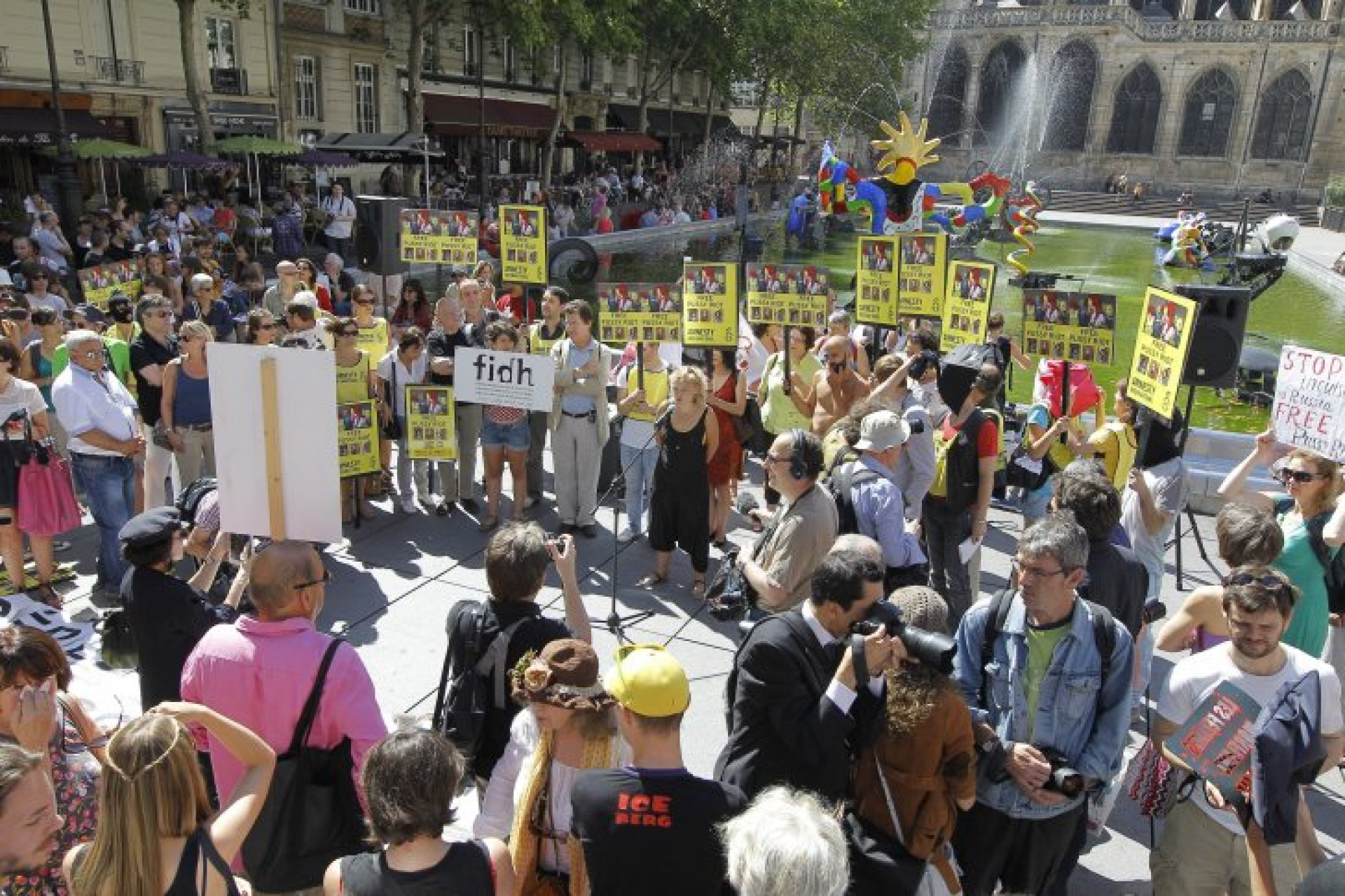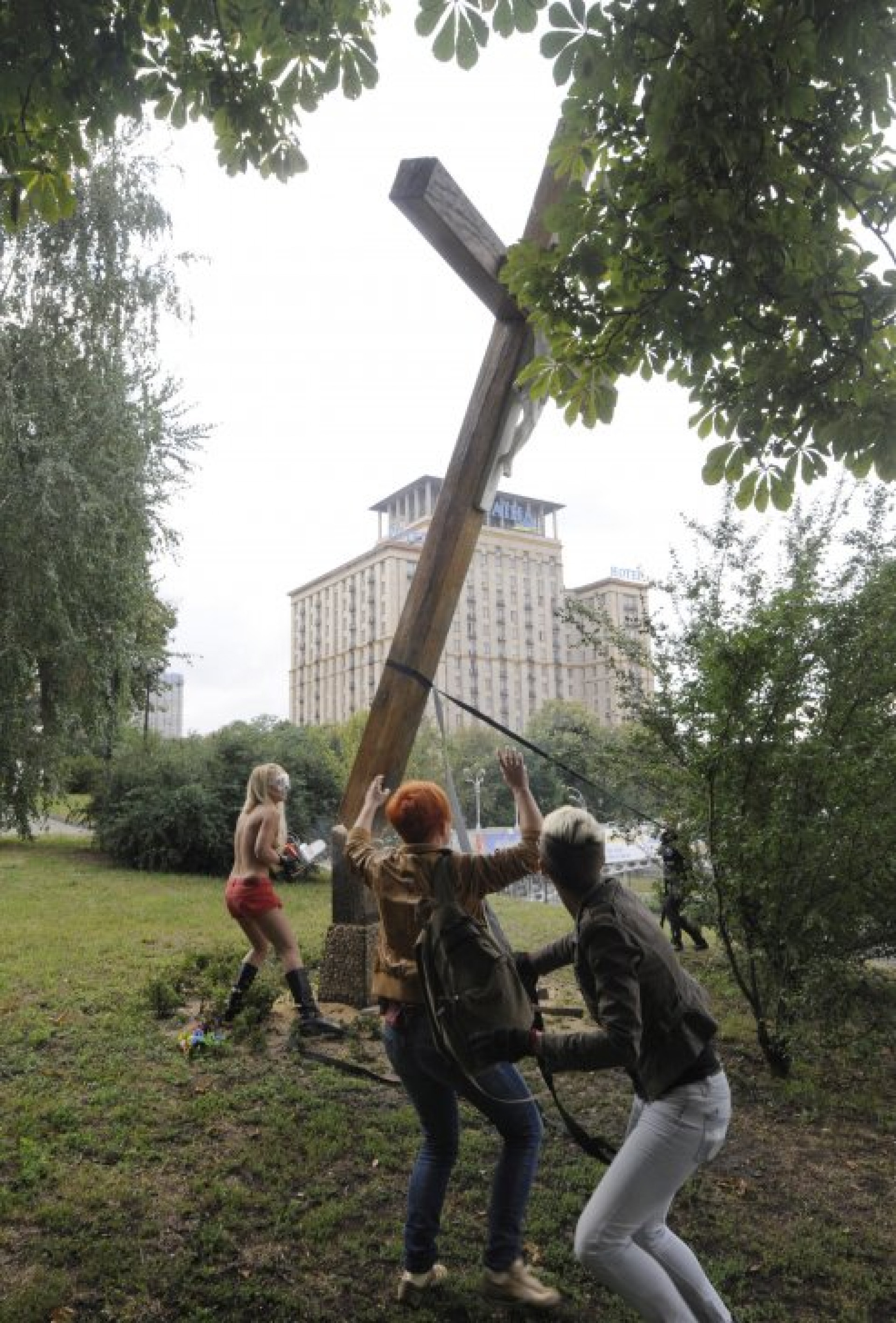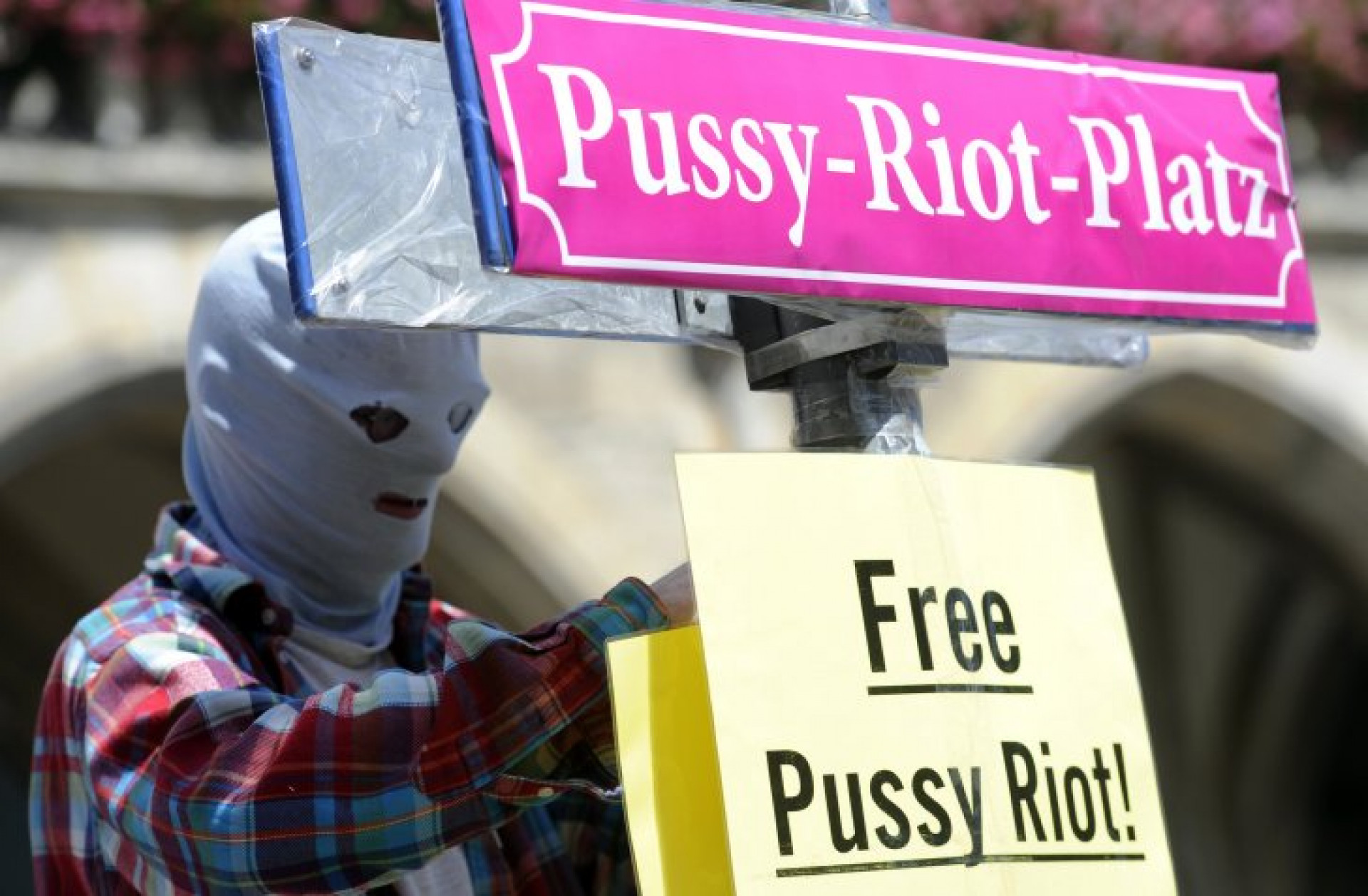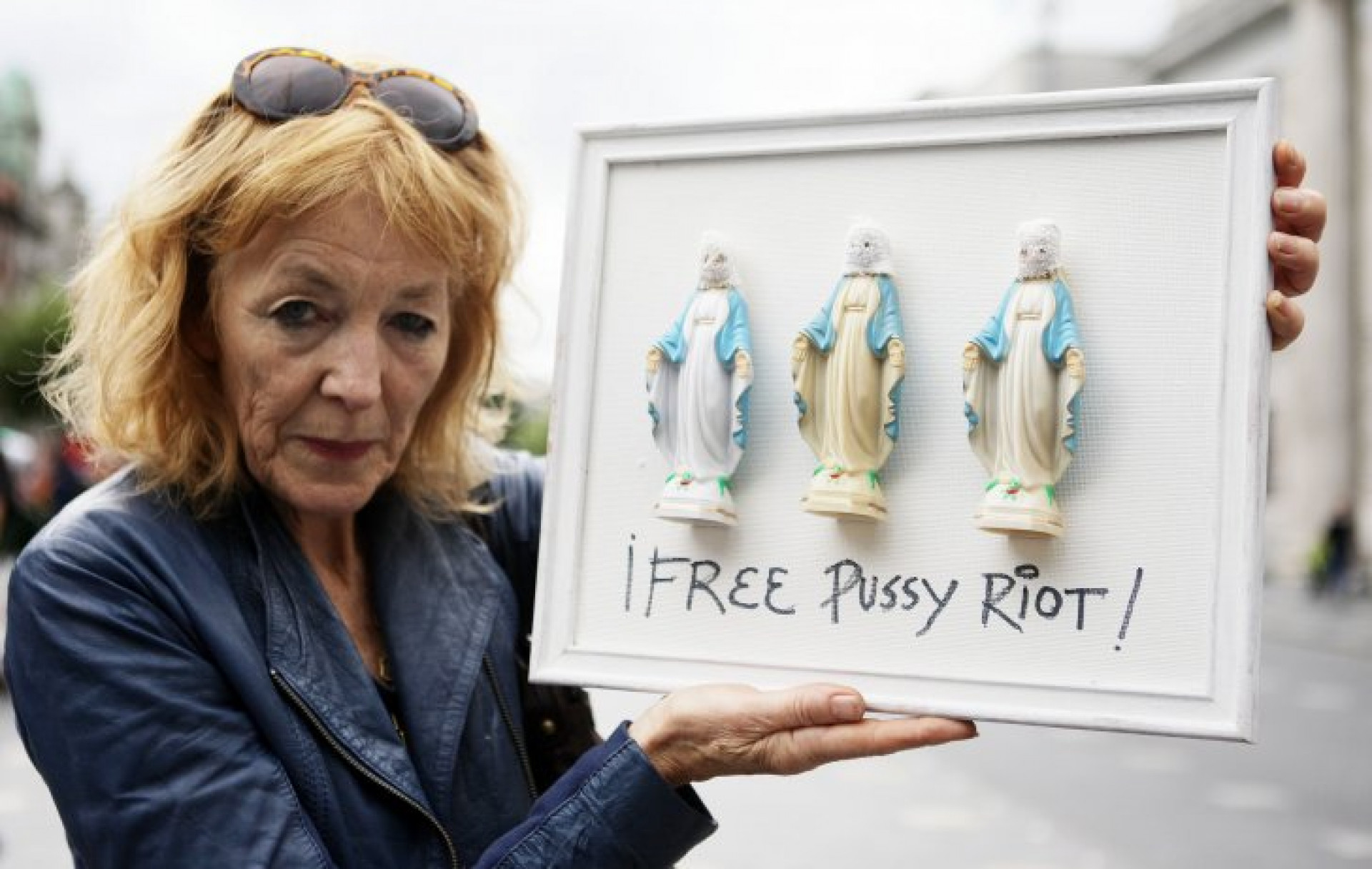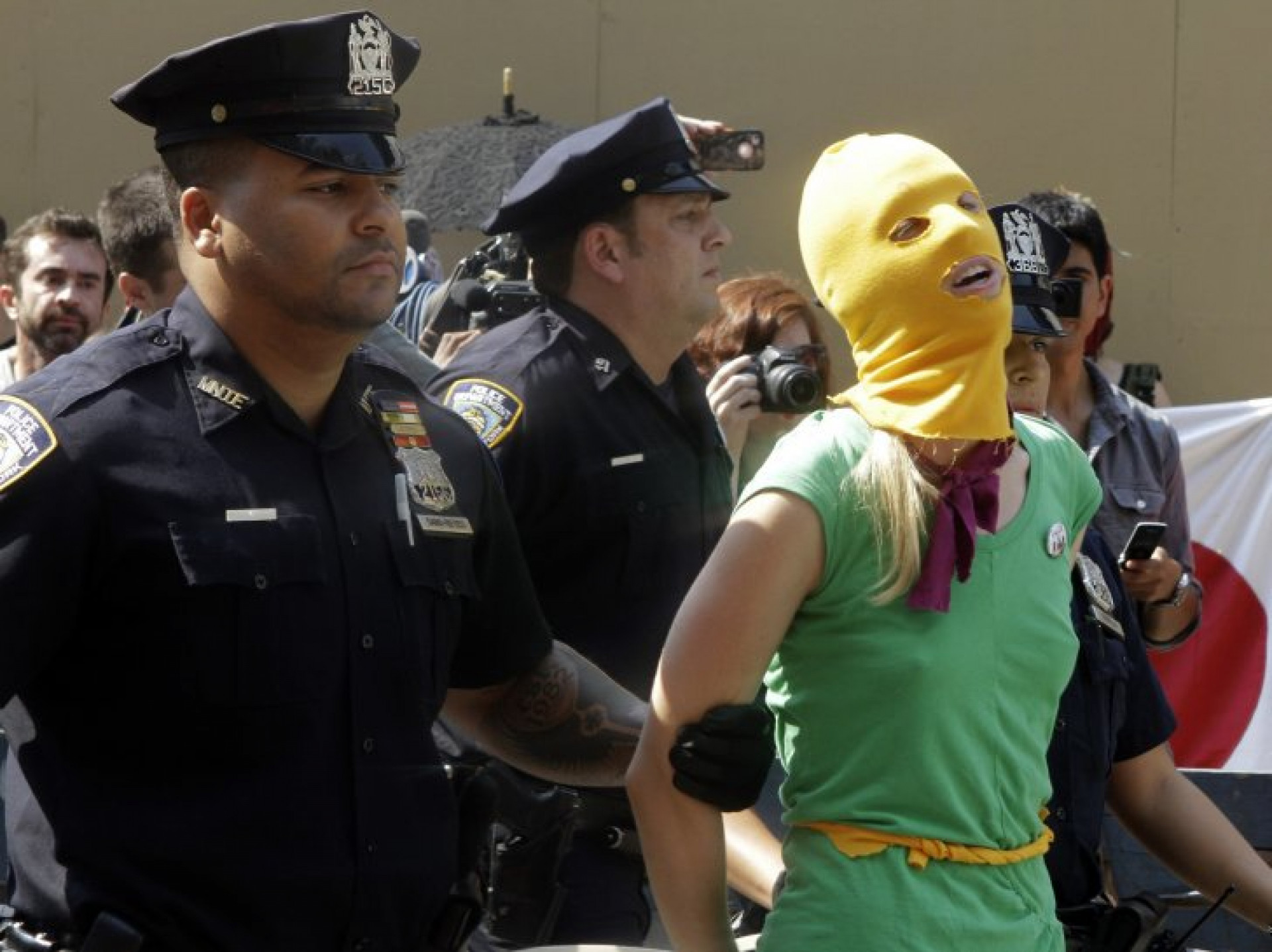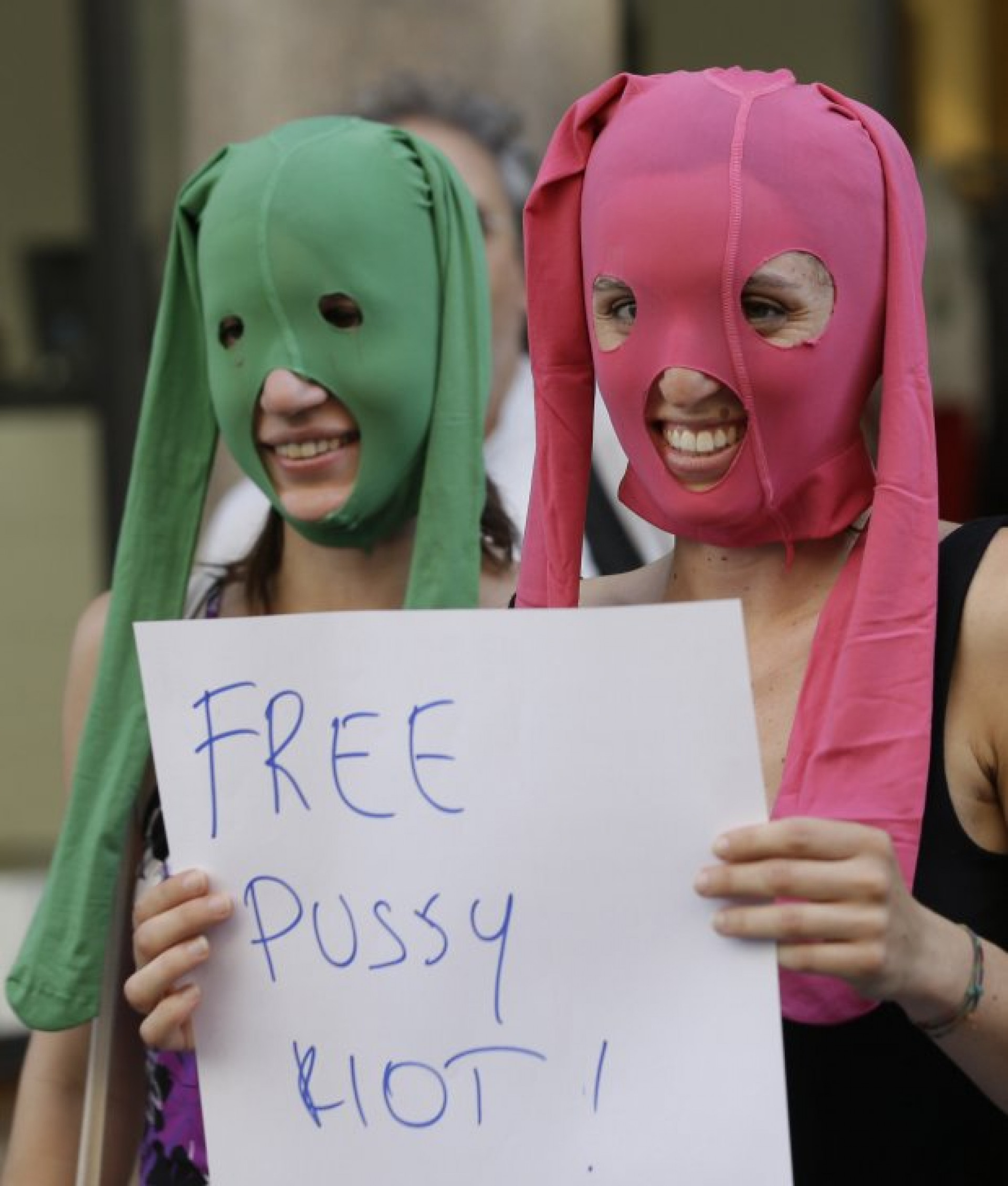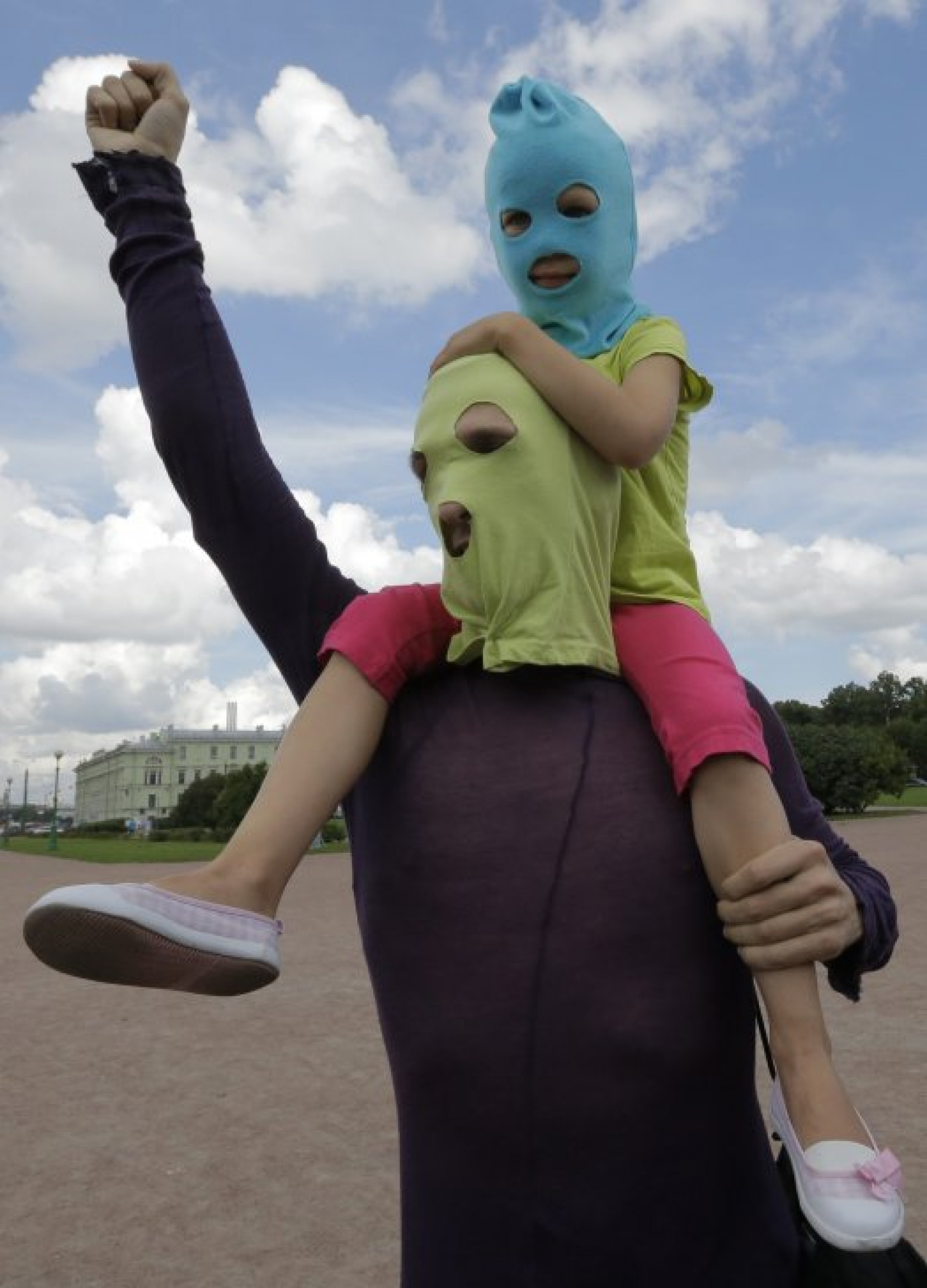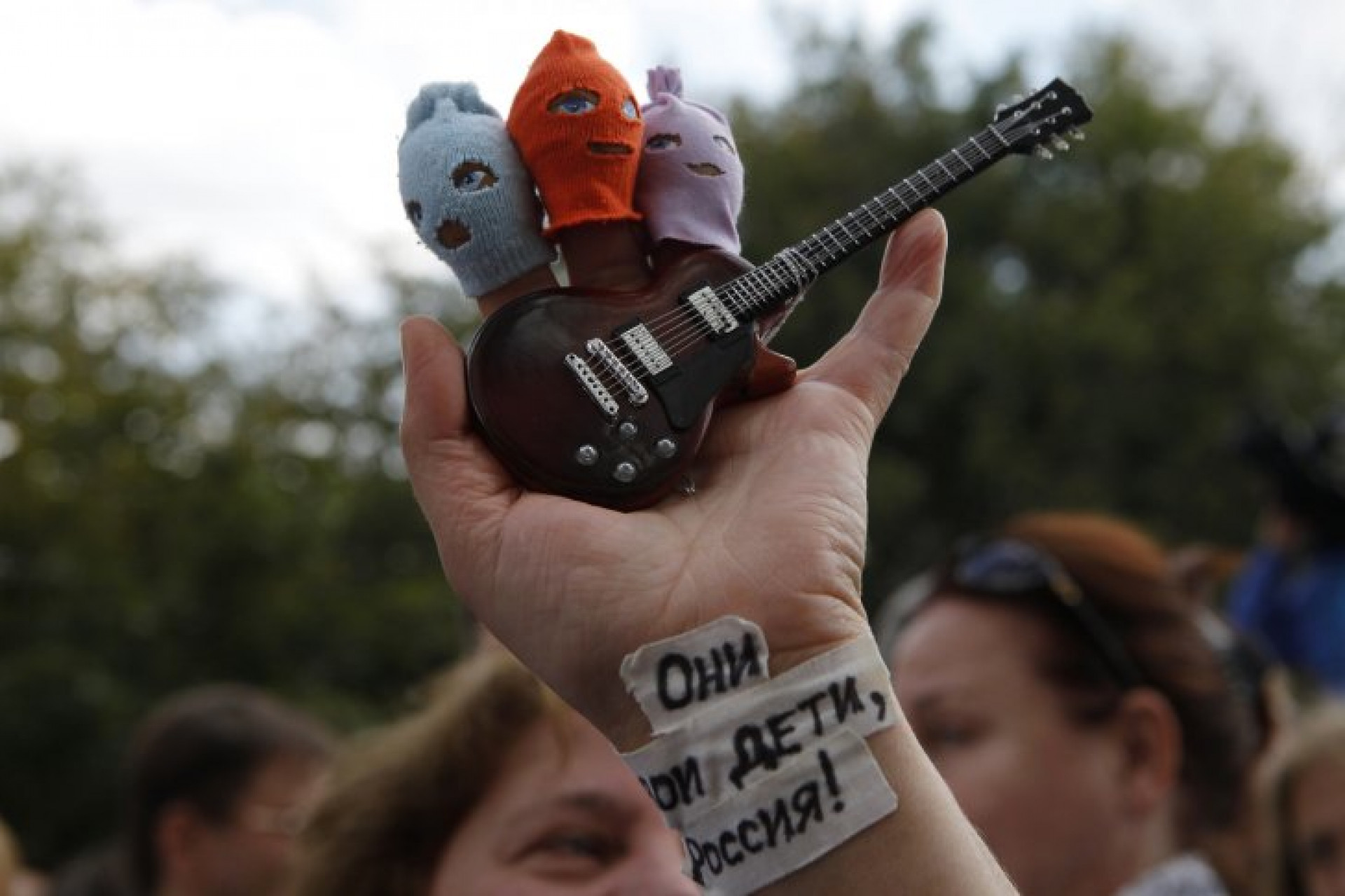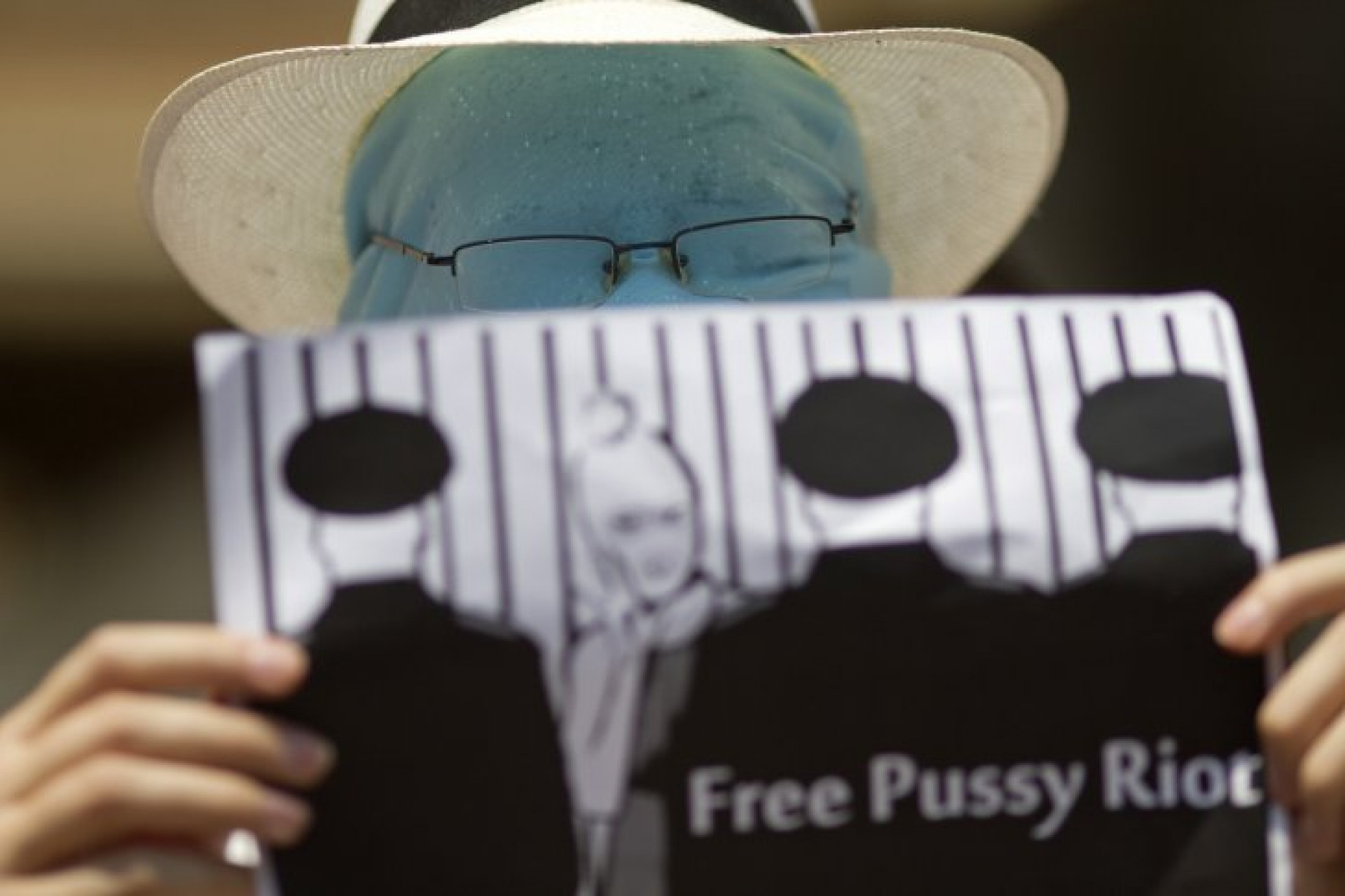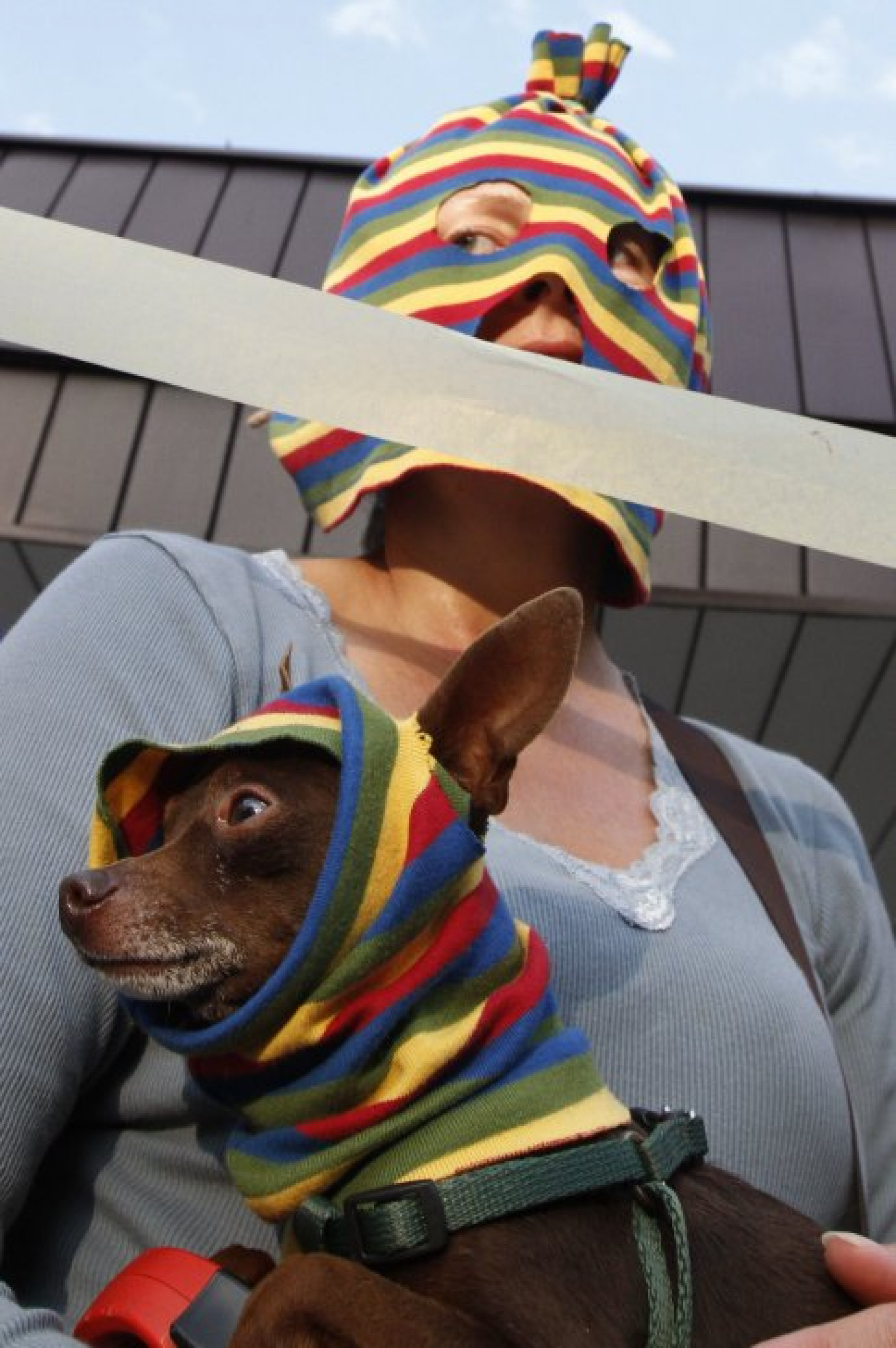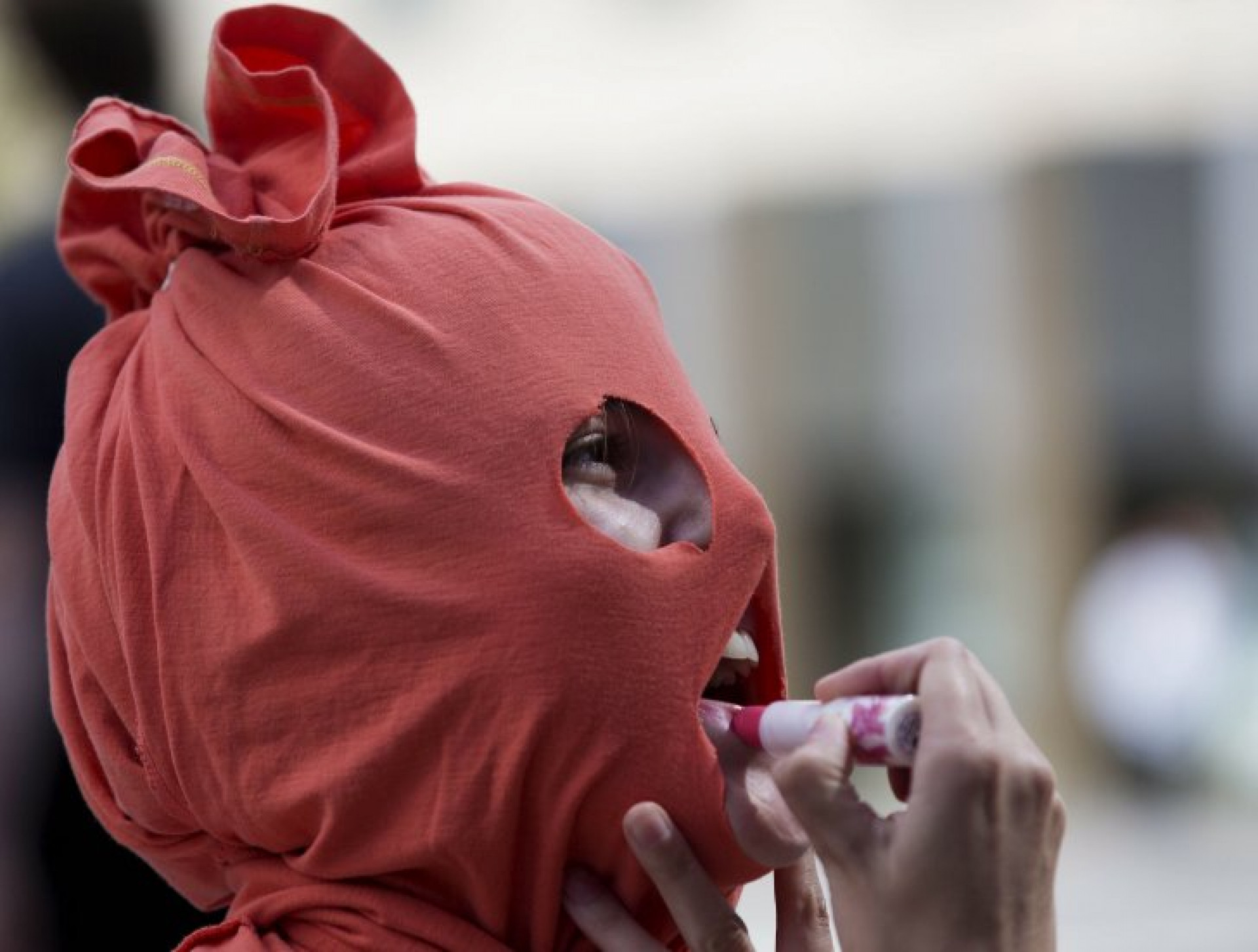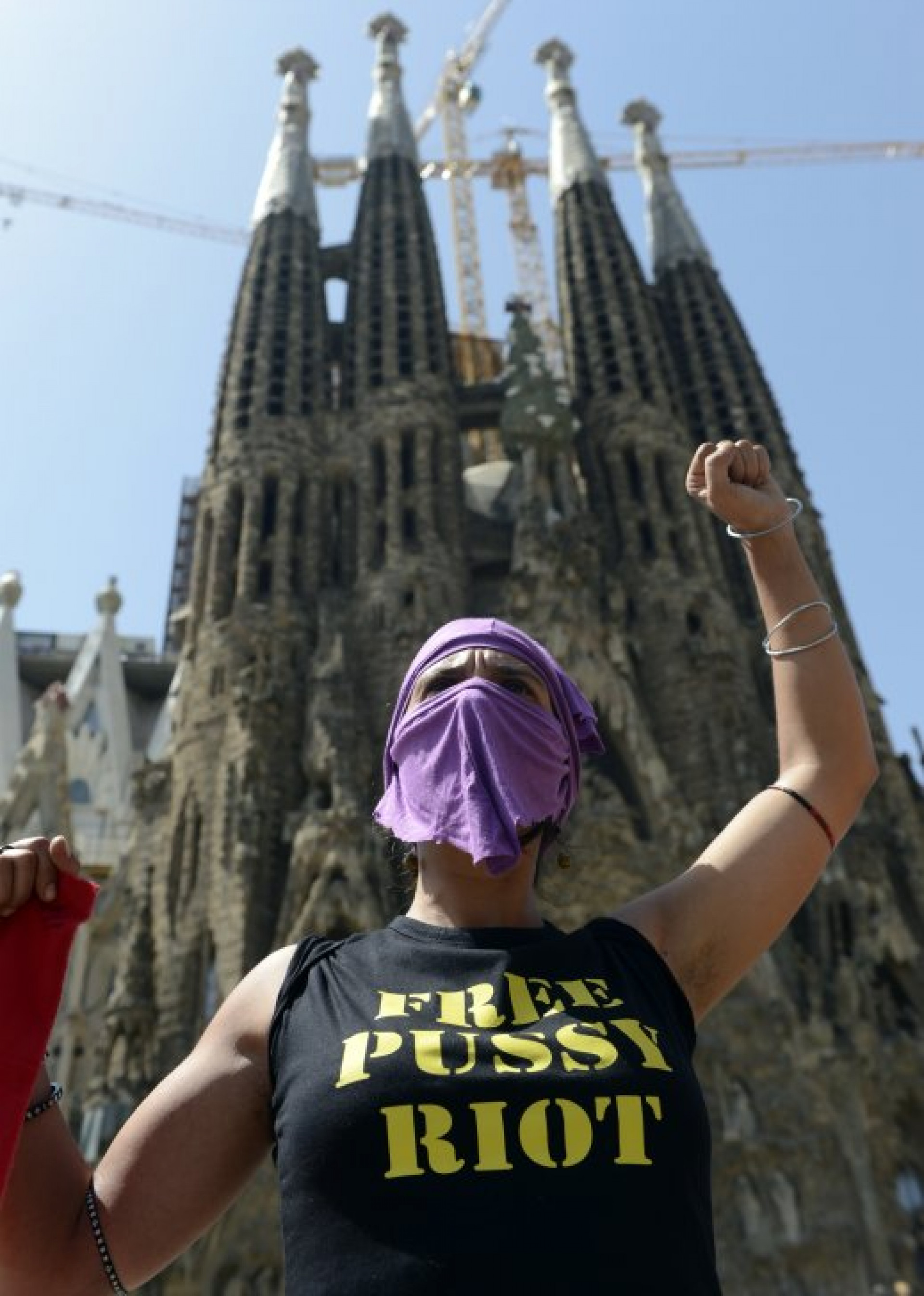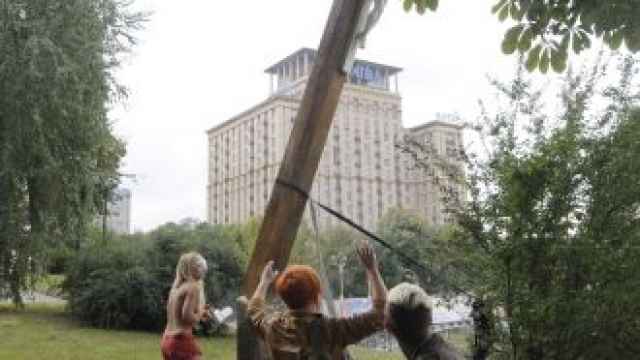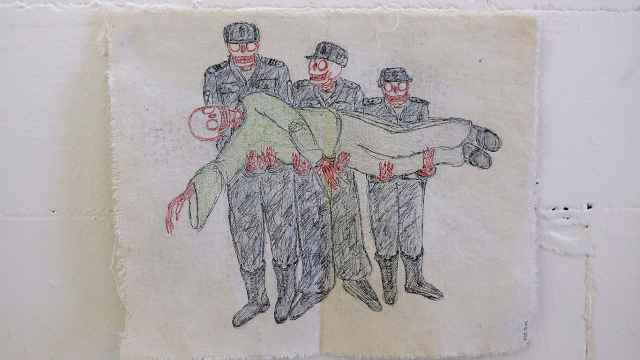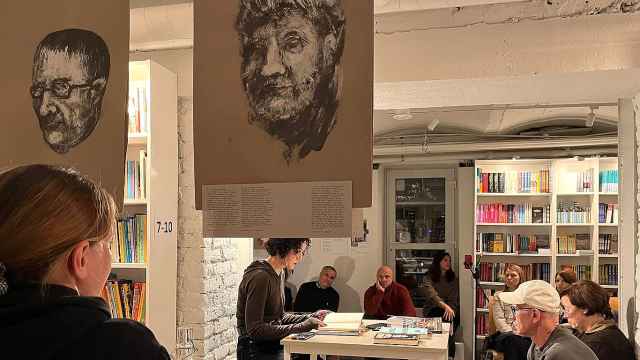Guilty Verdict Puts the Heat on Putin
Correction appended
Vladimir Putin has come under the harshest international criticism of his third-term presidency, with worldwide governments, celebrity artists, Hollywood actors and even his prominent supporters denouncing the jailing of three members of the punk band Pussy Riot.
But the Kremlin gritted its teeth and maintained that Putin — contrary to widespread belief — had nothing to do with the court's decision to slap two-year sentences on the musicians for performing an anti-Putin song in Christ the Savior Cathedral in February.
While it was unclear when the fuss might blow over, some analysts said the ruling had managed to strike a delicate balance between the opinions of various parts of the Russian population.
"Judging by the public resonance, the sentence is sufficient," said Alexei Mukhin, an analyst with the Center for Political Information. "If the young women had been freed, the opposition would have seen the authorities as weak. If it had been too harsh, the Kremlin would be labeled as repressive."
The trial of the feminist trio Nadezhda Tolokonnikova, 22; Maria Alyokhina, 24; and Yekaterina Samutsevich, 30, on charges of hooliganism inspired by religious hatred began a torrent of international criticism when it opened July 30 — and that torrent swelled to a flood when the news that they will serve almost 18 months in a penal colony flashed all over the globe. The five months they have spent in custody was deducted from their sentences.
Almost immediately after the verdict, the U.S. State Department expressed its concern, calling the punishment "disproportionate."
"We urge Russian authorities to review this case and ensure that the right to freedom of expression is upheld," spokeswoman Victoria Nuland said in a statement.
The European Union's foreign policy chief, Catherine Ashton, said the decision puts a "serious question mark over Russia's respect for international obligations of fair, transparent, and independent legal process."
"Sentencing of the three young women, two of whom are mothers of small children, to two years in prison for a peaceful, if controversial, expression of their views, is deeply troubling," she said in a statement.
U.S. President Barack Obama was "disappointed" by the court's decision, while German Chancellor Angela Merkel said that "a lively civil society and politically active citizens are a necessary condition, not a threat, for Russia's modernization," news agencies reported.
"Witch-trials for blasphemy and visa-free travel defined a 'common European civilization' in the 13th century," Estonian President Toomas Hendrik Ilves said on Twitter.
Amnesty International called the ruling "a bitter blow for freedom of expression" in Russia and said the trial was politically motivated. The human rights organization earlier declared the trio prisoners of conscience.
Madonna, who was branded a "whore" by Deputy Prime Minister Dmitry Rogozin after she voiced support for the punk band during a performance in Moscow earlier this month, daubed the name "Pussy Riot" in black on her arms during a concert in Switzerland on Saturday night.
In a statement on Facebook on Sunday, she called the sentence "inhumane" and urged "all those who love freedom to condemn this unjust punishment."
Pussy Riot has been publicly backed by dozens of prominent musicians, including the Red Hot Chili Peppers, Bjork, Bryan Adams, Paul McCartney, Franz Ferdinand and Sting.
The bassist from one of the first English punk bands of the 1970s, the Sex Pistols, added his voice to the debate on Friday. "That Putin's a [expletive], isn't he?" Glen Matlock said, Britain's The Independent reported.
Dozens of other artists also voiced their dismay.
"A shame to hear the Pussy Riot were found guilty," Hollywood actor Elijah Wood, famous for his role in the "Lord of the Rings" movies, said on Twitter. "But [I'm] not surprised."
British comedian, writer and actor Stephen Fry, who has almost 5 million Twitter followers, tweeted that the two-year sentences make Putin look like "a fool, not a strong leader. An ass, not a bear."
Even sports lovers got involved. Fans of Sweden's AIK, which will play Moscow's CSKA in the Europa League on Thursday, promised to unveil banners in support of Pussy Riot.
Putin has faced international criticism for clamping down on nongovernmental organizations and opposition rallies since returning to the Kremlin in May. But the criticism pales in comparison to the denouncements surrounding the Pussy Riot verdict.
The reaction within Russia, however, was more nuanced.
Foreign Ministry spokesman Alexander Lukashevich pointed out in a statement posted on the ministry's website Saturday that religious offenses similar to that of Pussy Riot could be punished by up to three years in jail in Germany and up to six months of imprisonment in Austria.
The maximum sentence that Judge Marina Syrova could have imposed was seven years.
"I think the sentence is pretty logical, because their action was not about freedom of speech and Putin but part of a larger strategy to discredit the Russian Orthodox Church," Sergei Markov, a former United Russia Duma deputy and now vice president of the Plekhanov Institute, said by telephone.
The sentence would have been longer if two of the three punk rockers had not had small children, he added.
Although Patriarch Kirill denounced Pussy Riot's performance on the eve of presidential elections as the work of the devil, the Orthodox Church called for clemency late Friday after the two-year jail term was announced.
The defendants apologized for any offense they might have caused to Orthodox believers on the first day of the trial.
Putin's spokesman Dmitry Peskov said Friday that Putin could not intervene with the judicial process, Interfax reported. Putin told journalists in London during a visit to the Olympic Games at the beginning of August that he hoped Pussy Riot would not be treated "too harshly."
But most noticeable among the clamor of reaction to the court's guilty verdict were those voices usually loyal to Putin.
Former Finance Minister Alexei Kudrin, who has worked closely with Putin since the 1990s, was trenchant in his denouncement Friday and made a link with the appeal of Russia's business environment.
"It's yet another blow to the judicial system and, above all, to the trust in it held by Russian citizens," Kudrin said in a statement on his website. "The country's image and attractiveness for investment has been dealt huge damage."
The verdict was "harsh," said senior Duma Deputy Andrei Isayev, of United Russia, RIA-Novosti reported. "It's a lesson for all that the state has protected and will protect the rights of all religious groups in our country," he added.
Even Georgian-born television presenter Tina Kandelaki, who is as shrill in her praise of Putin as in her denunciations of recent opposition protests and their leaders, appeared horrified by the implications of Pussy Riot's fate for Russia.
"Millions of taxpayer dollars spent in recent years on repairing the perception of our country abroad has been thrown into the wind," Kandelaki said on her blog. "In the eyes of the world, our image is now approaching that of a medieval dictatorship."
Correction: An earlier version of this story incorrectly identified Tina Kandelaki as a Georgian television presenter. She is a Georgian-born television presenter for Russian television.
Staff writer Alexander Bratersky contributed to this report.
Related articles:



